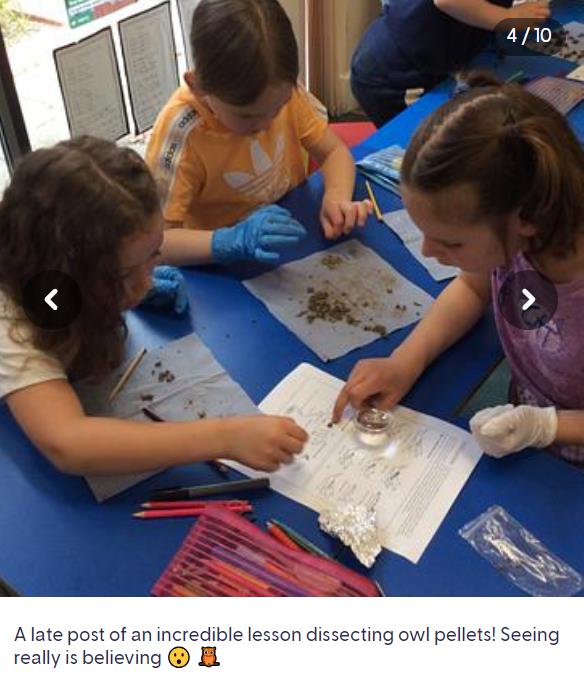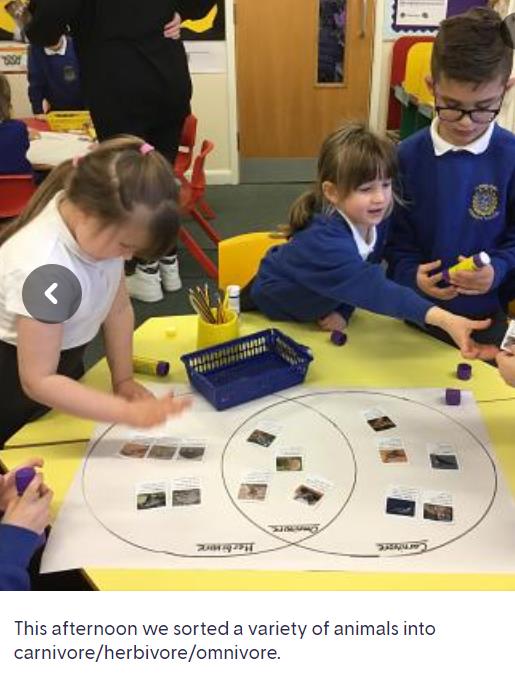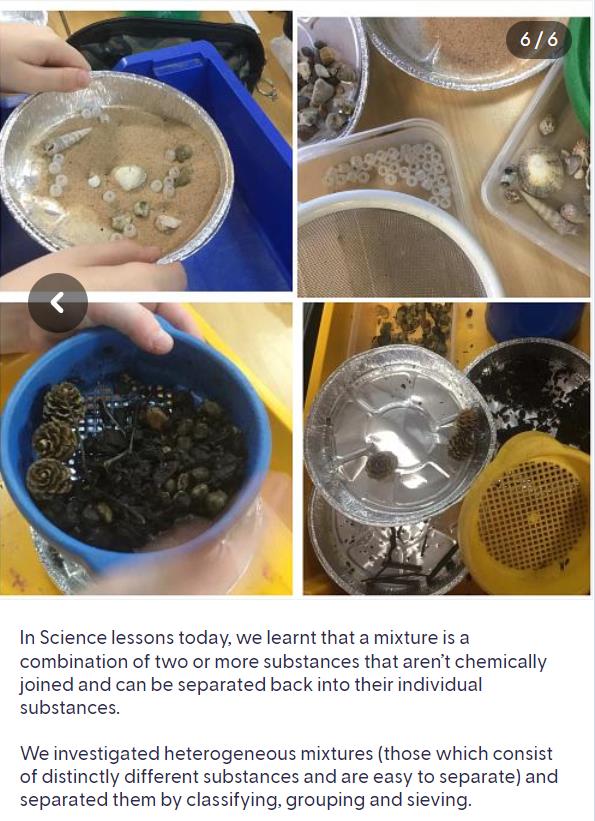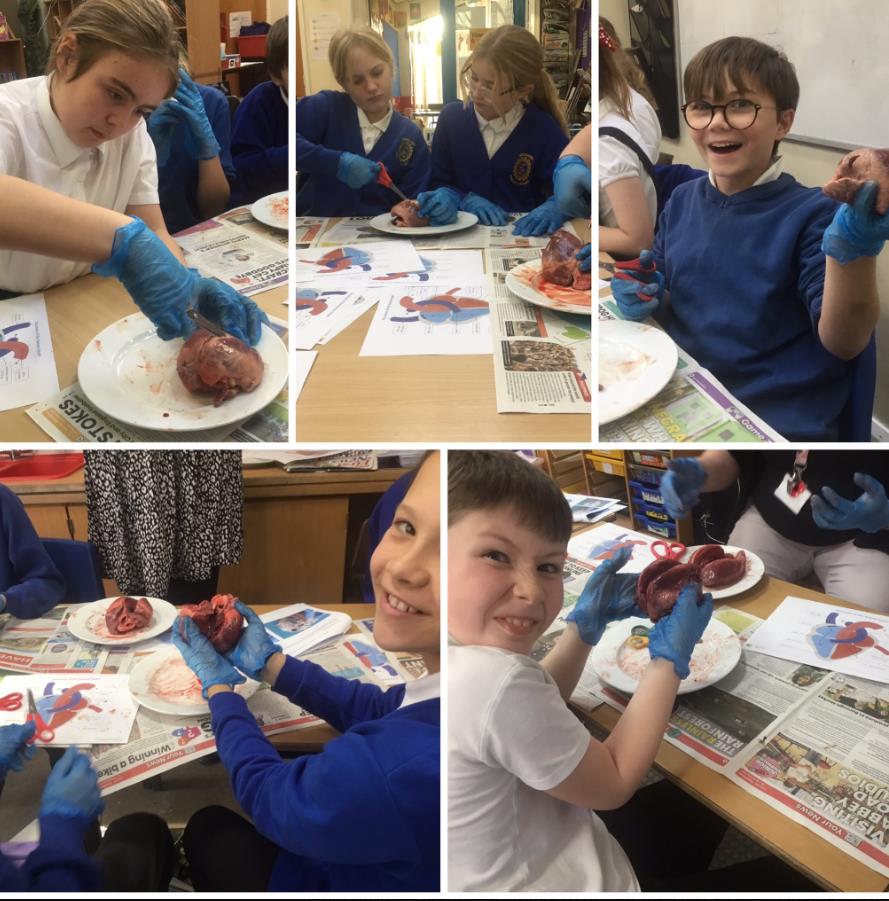Intent
Our vision at Hunmanby Primary School is to develop a lifelong love of Science within our pupils. We want our children to be curious, inquisitive and enthusiastic learners. We aim to enable them to suggest and use different lines of enquiry in order to answer their own questions. We offer a broad, rich and progressive Science curriculum that covers all areas of the national curriculum. We make cross curricular links through our Cornerstones topics. We want to equip our learners to understand the importance and use of Science today and in the future. Our Science capital is high as we have lots of sharing opportunities within our school.
Implementation
We collect evidence of Science in many ways at Hunmanby Primary School. Our books show recording and photographs of Science investigations and alongside this we also conduct practical assessments at the end of every unit to ensure that we are meeting the working scientifically goals as well as assessing the pupils understanding of the current Science topic. We also share our Science work with parents too via Twitter and ClassDojo. We are a well-equipped school and the Science coordinator regularly checks the resources and shares this list with the staff. We cover a Science topic in every half term and these are often linked to our Cornerstones topic.
EYFS
The teaching of Science is practical, playful and inclusive with support and challenge from adults in class sessions, small groups and working with individuals. There is a combination of adult-led, teacher taught sessions as well as a wealth of stimulating continuous provision opportunities when adults scaffold learning through skilful interactions and questioning. Throughout all of these areas of learning and at the heart of our EYFS are the “Characteristics of Effective Learning”. Our foundation stage team make links to the Year 1 and 2 Science curriculum as we believe that Science should be introduced to children at an early age. Examples of the foundation stage’s wide variety of learning include: Forest School sessions, role play linked to various settings, small world play (bugs and materials), cooking opportunities, a selection of observational experiments and the opportunity to look after and care for small animals.
Teaching Style
Teachers use assessment for learning to tailor their lessons and to cater for the abilities of their current class. We also introduce Scientific vocabulary for every topic and spend time explaining the meaning of these words so children can use them in their own work. Science is monitored regularly and feedback and next steps are given to teachers. Working Scientifically is at the core of our teaching of Science. Children are provided with opportunities to develop their questioning, predicting/hypothesising, recording and explanation skills.

Our outdoor environment and rural location play a key role in our science teaching and is used for many of our topics including habitats, classification and forces. Additional opportunities are provided to develop scientific skills and knowledge, such as science weeks and educational visits linked to the science curriculum.
Enrichment Opportunities
Enrichment events are an essential part of the Science Curriculum which enhances the knowledge-rich curriculum. The enrichment events provide pupils with discrete time to focus and deepen their learning, they provide opportunities for new experiences as well as nurturing and developing a thirst for learning. For example, we have a Whole School Science sharing week in March every year, we also have lots of opportunities for Year 6 who have been to Science & Technology events in Scarborough. In addition, we offer children the opportunity to attend the Science afterschool club during the academic year.
Cross Curricular
Our Science curriculum is heavily cross curricular. If possible, we try to link it to the term’s topic and we frequently use our data handling skills to help us to record and analyse results. Other subject links include: Literacy, Music, History, DT, PE, PSHE, Geography and Outdoor learning.
Impact
By the end of the curriculum all pupils will have a coherent knowledge and understanding of the three science disciplines: biology, chemistry and physics. This knowledge, alongside scientific skills, will able to ask perceptive questions, think critically and gather evidence, drawing relevant conclusions. This will be assessed through practical assessments (half term) built into their Cornerstones projects. Evidence of this learning will be recorded within the pupil’s books and in the Science Whole School Practical investigation folder.
Lorem ipsum dolor sit amet, consectetur adipiscing elit. Ut elit tellus, luctus nec ullamcorper mattis, pulvinar dapibus leo.
Lorem ipsum dolor sit amet, consectetur adipiscing elit. Ut elit tellus, luctus nec ullamcorper mattis, pulvinar dapibus leo.





